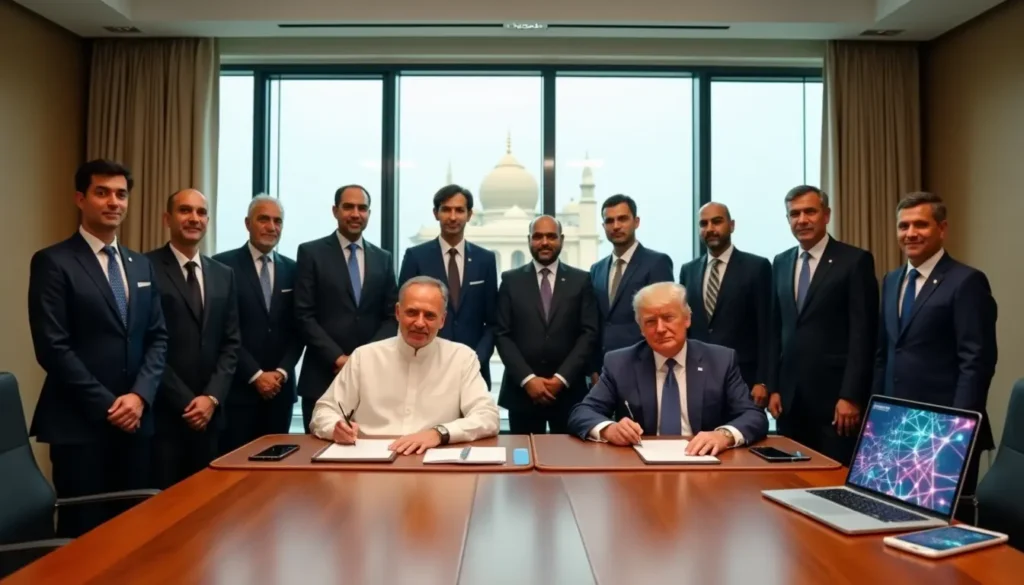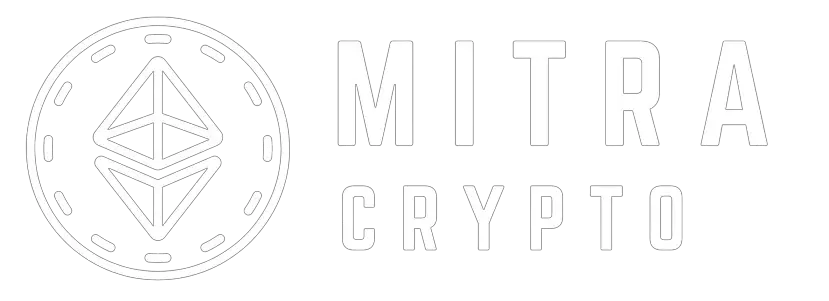Trump-Backed Crypto Firm Partners With Pakistan for Blockchain Growth
Pakistan has made a major move in its blockchain journey. On April 27, 2025, World Liberty Financial (WLF) signed a landmark Letter of Intent with the Pakistan Crypto Council (PCC) in Islamabad. WLF founders Zach Witkoff, Zak Folkman, and Chase Herro, alongside PCC CEO Bilal bin Saqib, signed the agreement. The event attracted top officials, including Pakistan’s finance minister and central bank governor.

This collaboration focuses on five key areas: regulatory sandboxes, stablecoin applications for remittances and trade, tokenization of real-world assets, decentralized finance (DeFi) growth, and blockchain advisory services.
Finance Minister Muhammad Aurangzeb praised the deal, saying it opens new doors for investment, innovation, and global leadership.
Pakistan’s Young Population Drives Blockchain Growth
A major reason for Pakistan’s blockchain potential is its young population. Over 60% of the country’s 240 million citizens are under 30. This youth demographic has helped make Pakistan one of the fastest-growing crypto markets worldwide. About 17% of internet users aged 18–60 now invest in cryptocurrencies.
The energy and vision of Pakistan’s youth, combined with growing technical skills, create a powerful foundation for the country’s digital transformation.
Boosting Financial Inclusion Through Blockchain
Pakistan faces a major financial gap: around 110 million adults remain unbanked. Blockchain technology offers a solution by providing easy access to financial services without traditional banks. Experts believe blockchain-based solutions could improve financial inclusion by 20–30% in the coming years.
Prime Minister Muhammad Shehbaz Sharif emphasized that Pakistan’s youth could lead the nation into a new era of financial innovation.
Transforming the Remittance Sector
Pakistan is one of the largest recipients of remittances, with over $31 billion received in 2023-2024. However, traditional money transfer services charge fees of 4–7% per transaction. Blockchain-based remittance systems, like Bitcoin’s Lightning Network, could cut these costs to as low as 0.1%.
Cheaper and faster remittance solutions would not only benefit millions of families but also inject more money into the national economy.
New Regulatory Framework for Crypto and Blockchain
Pakistan is shifting from a cautious approach to a more welcoming environment for blockchain. In 2025, the Federal Investigation Agency (FIA) unveiled Pakistan’s first virtual assets policy aligned with Financial Action Task Force (FATF) standards.
Key features of the regulatory framework include:
Multi-phased implementation starting in 2026
Regulatory sandboxes for safe product testing
A balanced, pro-growth tax system
Oversight by agencies like the State Bank, SECP, FBR, and FIA
The creation of the Pakistan Crypto Council highlights the government’s commitment to balancing innovation with investor protection.
Conclusion: Pakistan’s Blockchain Future Looks Bright
The partnership between World Liberty Financial and the Pakistan Crypto Council marks a turning point for Pakistan’s blockchain ecosystem. With strong grassroots crypto adoption, a young population, and a new regulatory framework, Pakistan is positioning itself as a regional blockchain leader.
While challenges remain, strategic collaborations like this show how developing economies can responsibly embrace blockchain technology and drive future growth.













